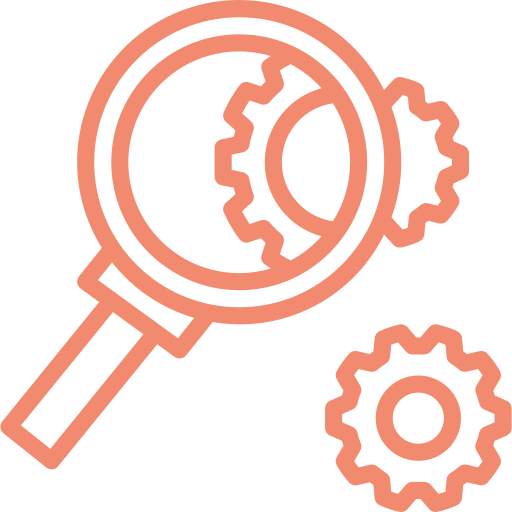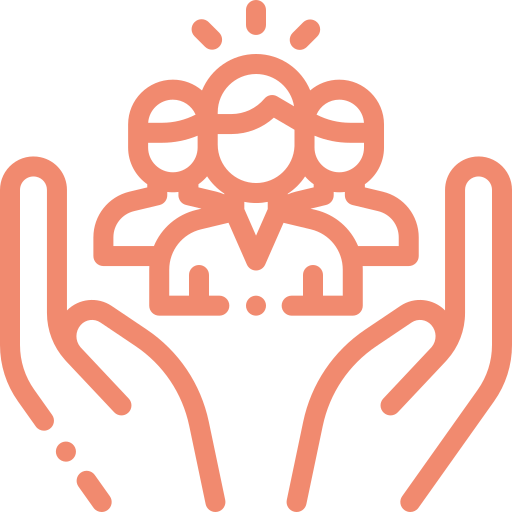TEA BREAK WITH
EMILY BANGO
What kicks off your Monday morning?
A cup of coffee or tea — I know, very original! And catching up on the news.

What inspires you in the Development sector?
I have always had an interest in learning about and experiencing different cultures and working in the International Development sector allows me to work and learn directly from people in all different parts of the world. I love feeling connected to a global community and focusing on projects that prioritize the public good and protecting the most vulnerable among us.
I love feeling connected to a global community and focusing on projects that prioritize the public good and protecting the most vulnerable among us.
The development sector is by no means perfect and there is a lot that needs to be improved. My expertise in MEL makes me feel as though I’m doing my small part to learn from and improve the way we work and the way that we implement development projects.

What exactly is MEL?
MEL stands for monitoring, evaluation, and learning. Some organizations may recognize the acronym PMEL — the P stands for planning. While others may know the acronym MERL — the R stands for research. However you choose to spell it, the area of expertise is an effort to measure, analyze, and learn from our actions. There are many ways to do it, but essentially how I define it is, monitoring is collecting data on our actions, evaluation is aggregating and analyzing that data, and learning is how we use it to inform how we act in the future.

Why is HVFC expanding to offer MEL services?
We see work on MEL as a natural extension of our fundraising work. When Han started this company five years ago, he was motivated by supporting many organizations to improve their fundraising capacity and to reach their fundraising goals. We see strong MEL processes as integral to that improvement in fundraising. As a fundraiser (or Business Development professional) part of your job is establishing and maintaining relationships with current and potential donors. Fundraisers are consistently seeking success stories that highlight the impact of projects — and often illuminating the overall impact of the organization. They even trigger the organization to increase its impact because they know this will attract more funding . Sure, all of this can happen without strong MEL processes to collect, aggregate, and analyze data — but it won’t be as consistent or comprehensive.
We see work on MEL as a natural extension of our fundraising work.
The MEL services also include designing projects, development of Theories of Change (ToCs), drafting winning proposals — all are services that we already offer for our fundraising clients but that are now complemented with more MEL expertise to strengthen them.
We also like the idea of being able to offer continued services to our clients. Suppose we support an organization in developing a winning proposal. Once the project is awarded, we can then support this same organization in implementing the necessary data collection processes to regularly gather information on project progress. As the data is gathered, we can also facilitate reflection sessions that analyze the information gathered to highlight success stories and lessons learned that the project team can feed up to organizational management — including fundraising staff. With these processes in place, we can also support in-depth discussions and analysis on the impact these projects are having and how organizations can think and act critically to increase their impact.
Once the project is awarded, we can then support the organization in implementing the necessary data collection processes to regularly gather information on project progress, […] highlight success stories and lessons learned, […] think and act critically to increase the project’s impact.
In summary, we see this expansion increasing the ways we can be supportive of our clients and we are very excited about it! And without giving too much attention to it we already started. Now, with a handful team of MEL experts working on this topic being busy, we have to admit that also the organizations we work with are excited!

How do you approach talking about the value of MEL with a new client?
I start by trying not to use the words – monitoring, evaluation, and learning!
On a more serious note, often organization program staff feel burnt out by the MEL vocabulary. I often hear staff say things like, “Oh — I don’t like MEL” or “I’m not an expert”. What I love most about MEL is that with a little more understanding shared about the concepts, organization staff come to understand that more often than not, they are already gathering information on their programs, analyzing it, and using it to inform current and future activities. The biggest gap is that often these processes are happening at an individual level and the data gathering isn’t consistent across projects, teams, and the organization.
What I love most about MEL is that with a little more understanding shared about the concepts, organization staff come to understand that more often than not, they are already gathering information on their programs, analyzing it, and using it to inform current and future activities.
With that in mind, I typically start with asking lots of questions about pain points when it comes to talking about project progress, including success and failures. I ask how staff understand whether their project is on track and how they communicate information to the donor. After absorbing all of this, more often than not, I get to say: “Great news! You are already implementing MEL! Let’s figure out how to make that we make it as easy as possible for you to regularly collect the most useful data that helps to make your job easier — both in implementing your project and communicating to the donor.”

Can you give some examples of what HVFC MEL services look like?
Sure! Our MEL experts work closely with clients during the proposal process. We start by working with the proposal team to develop the project Theory of Change (ToC) and then building out the logic of the proposal from there. We provide guidance and revisions to proposal drafts, and even write sections that relate to how activity results will be collected, measured, analyzed, and learned from. Essentially, we take care of all the MEL elements of a proposal — TOC, logical framework, indicator table, and monitoring and evaluation plan. If a client isn’t familiar with any of these terms I just mentioned, we start with trainings to get everyone up-to-speed.
Another example is conducting external evaluations. Organizations hire us to conduct an evaluation on a project at the mid-term or in the final months. We establish an evaluation plan — including key evaluation questions — in collaboration with the project team to ensure that the answers being sought are interesting and valuable to the organization. We carry out research (we can do this in-person, with local consultants or virtually) including desk reviews, online surveys, and in-depth interviews. We analyze what we’ve collected and then prepare an evaluation report that answers those key questions. We keep an emphasis on ensuring the evaluation is useful to the client by working collaboratively and keeping the organization informed along the way.

What helps you do your job well?
Working with patient, hardworking colleagues and lots of resources from my evaluation community! I’m a board member of the Washington Evaluators, an affiliate of the American Evaluation Association — which helps me stay up to date on conversations happening in the evaluation world.
The other thing that helps is great clients! I have had the opportunity to work with some great organizations — both part of the NGO and the donor community — and it certainly helps working with the clients that are so focused on improving processes to implement more efficient and impactful projects.

What is your favorite part of working in MEL for the development sector?
I like getting into the details of a particular project and learning about the ways that individuals are working tirelessly to effect change in their communities all over the world. I like getting to provide a new, outside (yet informed) perspective for clients who have been in the weeds on a project and may just need a chance to see something in a different way to be reinvigorated.
I also gather lessons from each project that support my own personal and professional growth. And I love that my work is different every day.

What do you consider one of your biggest successes in consulting?
Since I started consulting in 2017 — my biggest successes may not look like it on paper. I love it when a reluctant program staffer turns a corner on MEL processes and sees how it can help make their jobs easier. I remember early on when a young program staff member I was working with told me how much she appreciated the indicators because it made drafting her donor reports easier. I was so excited to hear that.
Other than that, I recently led a project to create a MEL grant application and implementation guidance for a new Foundation. The guidance is available on their website and it is intended to support grant applicants to strengthen proposals they submit. I’m really proud of how it turned out — and it was a total team effort. HVFC handled the content, translations into Spanish and French, and a beautiful downloadable guidance design and the Foundation collaborated with us all along the way and adapted it for their website. It feels like a big success when our HVFC team and our client works so well together and I’m so grateful that it happens so frequently at HVFC — it’s the norm!

Any final words?
If you’ve been following me gushing about MEL for this long, please check out the services we offer on our website and connect with me to learn more (emily@hvfc-international.com)!

Emily Bango
President of
HVFC USA
About the series
Have you ever wondered whether you had more in common with your peers than just your passion for making a difference? Through informal interviews, we explore the ultimate drives of fundraising professionals, donors and association’s leaders, as well as their secrets for successful Mondays and their insights about the NGO and fundraising sector. Grab a cup and read on!
stay up to date
We have at heart to be a resource to you. According to your preference, we will share insights, trainings, networking events and career opportunities that might be of interest for anyone from entry-level to seasoned professionals.
Contact
Phone
+31 (0)6 30 69 45 95
Address
Eursinge 8, 7935AB Eursinge (de Wolden), The Netherlands
228 East 45th Street, Suite 9E New York, NY 10017, USA
info@hvfc-international.com
Join us on
© 2024 HVFC International. All rights reserved.
HVFC ® is a registered trademark of HVFC International B.V.